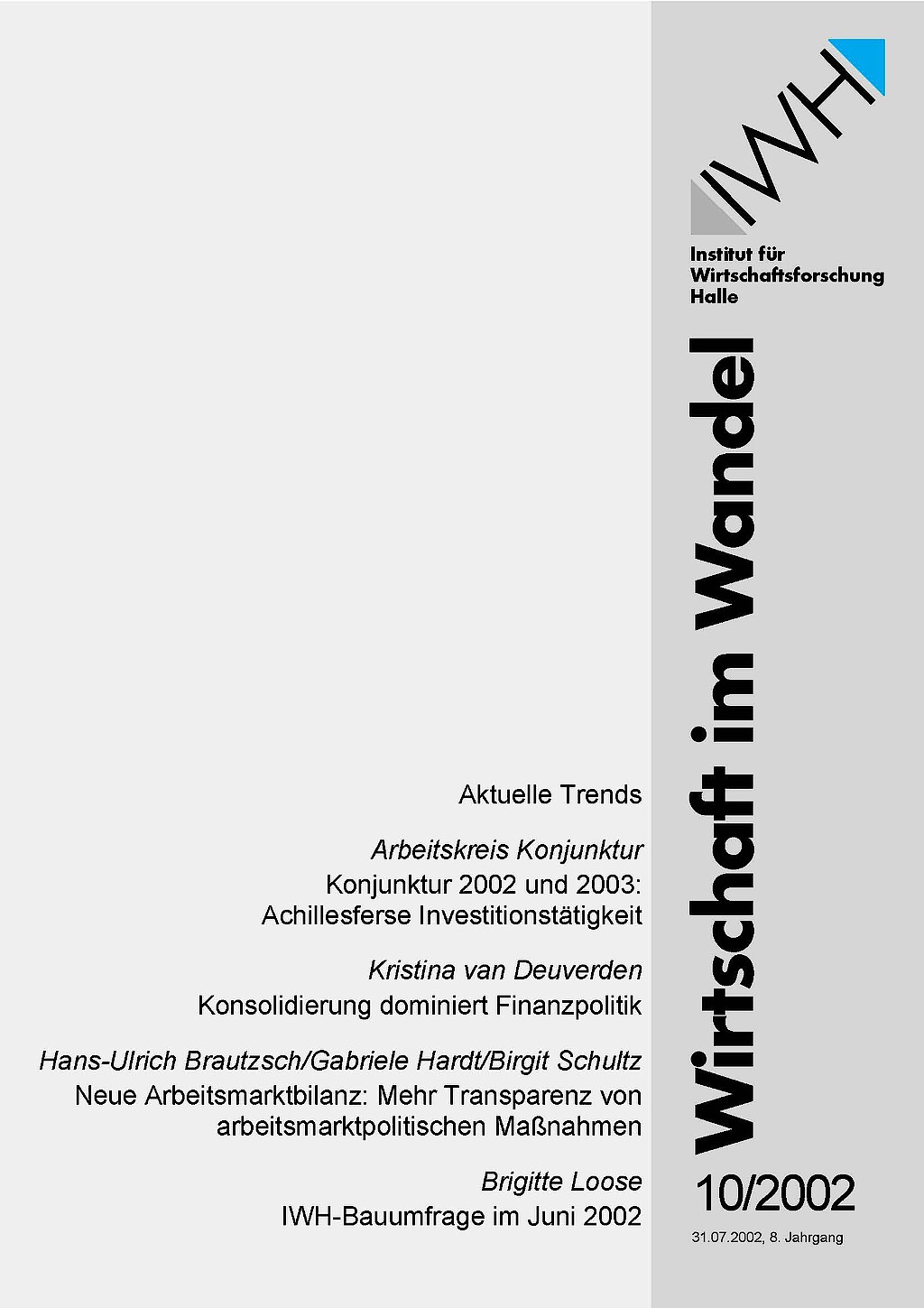Economic Development 2002 and 2003: Investments – The Achilles Heel of the Economy
Arbeitskreis Konjunktur
in: Wirtschaft im Wandel,
No. 10,
2002
Abstract
Der Aufsatz analysiert und prognostiziert die konjunkturelle Entwicklung in der Weltwirtschaft und im speziellen in Deutschland in ausführlicher Form für das laufende Jahr 2002 und das Folgejahr 2003. Die Weltwirtschaft hat im Winterhalbjahr 2001/2002 ihr Tief überwunden. Allerdings ist der konjunkturelle Aufschwung an der Investitionstätigkeit vorbeigegangen und wurde in den USA vom Konsum und in den restlichen großen Wirtschaftsregionen vom Export voran getrieben. Im weiteren Verlauf dieses und des nächsten Jahres werden die Investoren, in Deutschland und Europa aber auch die Konsumenten, allmählich ihr Vertrauen wieder gewinnen. Ein moderater Aufschwung auf breitere Basis, der im Verlauf des Jahres 2003 nachlassen wird, ist die Folge. In Deutschland hat die Lohnpolitik ihren moderaten Kurs verlassen, sodass zwar aufgrund der sich verbessernden Konjunkturlage gegen Ende des Jahres 2002 der Abbau der Beschäftigung nach lässt und im kommenden Jahr ein Aufbau zu verzeichnen ist, allerdings wird sich der Arbeitsmarkt nicht in gleichem Maße verbessern wie noch im Aufschwung 1999/2000. Die Finanzpolitik wird während des gesamten Prognosezeitraums wegen der Konsolidierungsbemühungen weiterhin restriktiv wirken. Da sich die konjunkturelle Situation deutlich verbessert hat wird die EZB, trotz der geringen Inflationsgefahren, den wichtigsten Refinanzierungssatz noch in 2002 um 1/2 Prozentpunkt anheben. Allerdings ist von der Geldpolitik im ganzen, aufgrund der weiterhin niedrigen Realzinsen, nicht mit einer restriktiven Wirkung zu rechnen. Die wichtigsten Daten der Weltwirtschaft und Deutschlands sind in detaillierten Tabellen enthalten.
read publication





